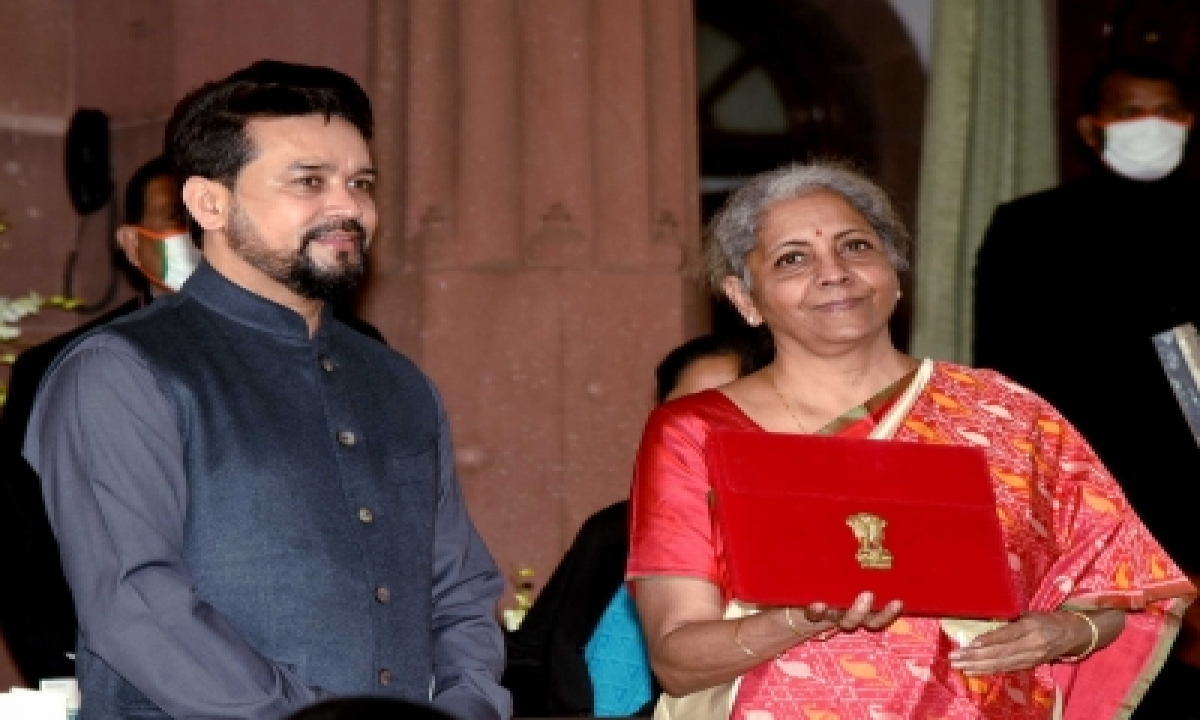New Delhi, Feb 2 : The Union Budget 2021, the first-ever paperless budget was announced by the Finance Minister Nirmala Sitharaman yesterday.While a lot of prominence was given to the revival of all the sectors, post COVID-19; the overall reaction from the education sector was lukewarm.
The sector felt that the budget fell a bit short on capitalizing on the opportunity to build momentum for digitization in Indian education that could have had far-reaching benefits for the young population.
While there would be many debates happening all around the country in the upcoming days, here are some quick reactions on Union Budget 2021 from the prominent leaders of the education sector.
Dr.Niranjan Hiranandani, Provost – HSNC University lauded and welcomed the futuristic measures announced by the Hon’ble Finance Minister and stated, “The modern outlook and approach in the budget outlook for the education sector is opening-up floodgates to reinvigorate human capital on a serious note.The outlays drawn is paving the path for the advance of India on the global map via extensive initiatives and measures like Rashtriya Shiksha Mission, extended support continues for primary education and for tribal areas as well as underprivileged additionally encompassing focus on higher education inclusive of skill development that falls in tune with NEP 2020.”
However, Mr.Manit Jain, Chairman, FICCI ARISE felt that the budget did not make important announcements as expected and said, “In order to fulfil the objectives established by the National Education Policy, spends in the education sector need to go up substantially.Given the economic crisis that we are in, due to COVID-19 and the several competing social sectors that demand great attention, it is high time that the State and Central governments invite private capital to invest in education.
This would mean higher investments through the private sector and FDI which could then be regulated by a government body.We have been wishing for opening up and formalising the sector and ensuring long term responsible and patient capital, giving the much- needed confidence to potential investors to invest in the sector and expect legitimate ROI as spoken about several times in the past.”
Speaking on the same lines, Vishnu Karthik, CEO Xperiential Learning Systems and Director, The Heritage School said, “Education sector has been seriously hit post-Covid-19 both in terms of financial sustainability and also in terms of learning outcomes.This budget hasn’t had anything specific to expand budgetary spend to offset the impact of COVID-19.
But it is not surprising as there is not much fiscal
cushion this year for the Government.We hoped to see more clarity on setting up institutions to strengthen assessments on critical skills enumerated by the NEP and hope that the MHRD provides clarity on this sooner.”
Commenting on the National Apprenticeship Scheme of 3000 crores, Mr.Sunil Dahiya, Executive Vice President, Wadhwani Opportunity at Wadhwani Foundation, said, “The proposed amendment of the Apprenticeship Act in the budget has the potential to reboot and revitalize our education and training systems to further enhance apprenticeship opportunities for our youth.An apprenticeship could be the best model to skill India’s blue-collar workforce as it will transform the student into a fully-trained industry executive with real-time exposure to shop-floor dynamics.It will not just enhance employability and reduce joblessness, but from an employer perspective, it will lead to improved skills, productivity and professionalism.”
Satisfied with the announcements, Mr.Aditya Malik, CEO & MD, Talentedge said, “The Union Budget 2021-22 has proposed some forward-looking measures for the education sector in the country.The proposal to set up 100 new Sainik schools in partnership with NGOs, the private sector and the states will not only expand the school base in this area but will also bring in synergies from the NGO and private sector.”
Mr.Shishir Jaipuria, Chairman, Seth Anandram Jaipuria Group of Educational Institutions also seconds the Union Budget and said, “The budget paves the way for a phased implementation of the National Education Policy with the first step of bringing 15,000 schools across India under the policy’s ambit.This will help minimize any widespread disruption in the pedagogical processes or curriculum, as these schools will serve as models for the other schools to follow.The other schools will draw their lessons from these model schools for a smoother implementation of NEP in the future.”
Charu Wahi, Principal Nirmal Bhartia School opined, “The prolonged closure of educational institutions for almost a year due to the COVID-19 pandemic has put immense duress with schools feeling the heat of financial stress now.The qualitative strengthening of more than 15,000 schools under the New Education Policy (NEP) shall assist in achieving the ideals of the policy.Besides, the setting up of 100 Sainik schools is a good step that will further create a ripple effect in terms of impact.The 750 Eklavya Model Schools for impoverished communities is a great move too, and we hope that private schools are also engaged in the setting up of these schools.”
While most educators are happy with the announcements for FY 2021-22, tech expectations are yet to be met for the striving education sector
.






